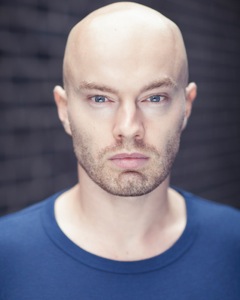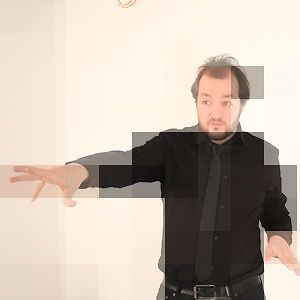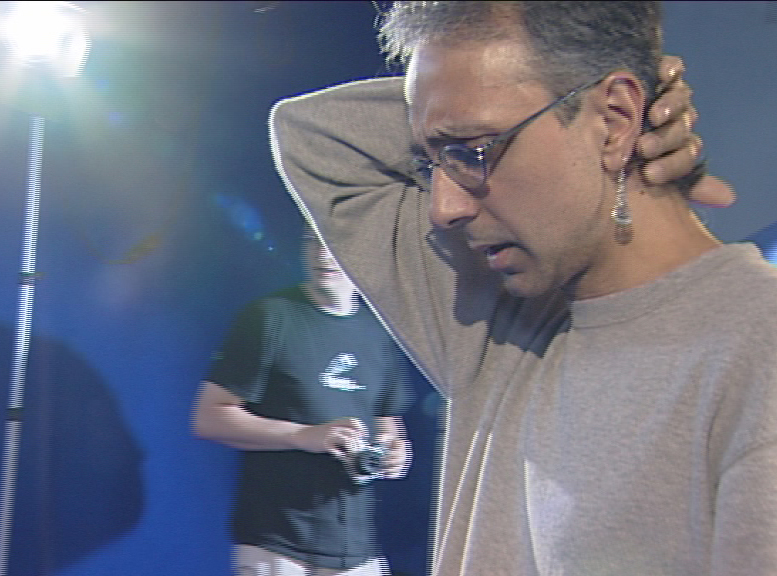ASK & DISCUSS
INDEXFilming on London Streets. Is that ok?
10 years ago - Justin Groves
Filming on London Streets. Is that ok? or do you need permission for everywhere you film? I know this topic has been addressed before, but I wouldn't mind some clarification.
Only members can post or respond to topics. LOGIN
Not a member of SP? JOIN or FIND OUT MORE
10 years ago - John Lubran
Alan, your contribution to this discussion is somewhat trite within the context of this conversation.
Either you've not read the conversations above and other recent conversations here or you're disagreeing with the assertions made. Which is it? A significant element of the issue discussed concerns the reality of the regulating powers of local councils and other institutions affecting filming in the public domain.
It's unfortunate that 'actual' law has been submerged beneath entrenched legal babble as so often asserted by all but the most learned lawyers.
It does require the application of considerable study beyond that typically undertaken by cap doffers, which in turn has allowed such utter unlawful nonsense to get away with it for so long. Just to reiterate; statute legislation, in the form of Acts and Bills, can not overrule our Common Law Constitution; indeed any attempt to enforce such a crime without creating a new constitutional instrument, is treason. It's a profound constitutional fact that an Act or a Bill, being a mere statute, cannot create or amend a Constitutional Instrument, even though some politicians and corrupted lawyers believe they can.
Some commentaries here have suggested that arguing with functionaries may not be worth the hassle, whilst others, including myself, are saying enough is enough with the ever creeping presumption of unlawful governance, at both national and local government level. Local corporations do not have the authority to overrule the supremacy of Common Law, even though they've been getting away with it for such a long time that people have become mesmerized by such delusions of grandeur. The only issues that might restrict filming within the public domain are Common Law torts such as causing a breech of the peace, causing harm, or causing an obstruction to the public's right of way; none of which are a matter for a local corporation any more than they are for anyone at all. If such an offence is caused then effectively it's a matter for the police acting within their remit as peace officers under their Common Law office. One really could not make it up. Assertions that a tripod or any other device whatsoever are an obstruction per se are entirely spurious. An obstruction must be proven according to Common Law definitions, not some jumped up unlawful By-Law. The Common Law definition of an obstruction is exactly as defined within any linguistically accepted meaning of the word, such as that provided within the Oxford English Dictionary, which by repeated precedence has become the standard reference to the meaning of words argued in English and Scottish Law. An actual obstruction according to that definition must be proven beyond any probable doubt before a reasonably defended argument can be defeated. Indeed, I have won such an argument in a magistrates court without having to go any higher, because the prosecution in that instant realised the fundamental flaw with their argument. Bad law hates the higher courts and will nearly always capitulate rather than face creating a too specific precedence.
In practice it is nearly impossible for a local Corporation to prove its case in a court of Common Law jurisdiction, where an accusation of obstruction is based upon nothing other than that a tripod was in use. (not County Courts operating under inferior civil or Admiralty jurisdiction which are, as defined in the authoritative 'Halsbury's Laws of England' 'Unlawful Administrative Hearings' one could hardly make that up either).
I've repeated the nomenclature 'local corporations' for a reason. All local government is in fact a corporate entity in law. They are not what they and many of us think they are and it would be impossible for the Supreme Court, for example, to find otherwise whilst upholding it's integrity as a court of Law. The more people assert their sacred Common Law Constitutional rights the better it will be for everyone. 'Who do they think they are? Why do we put up with it?
9 years, 11 months ago - John Lubran
@Simon Kennedy What's not correct in all situations Simon?
What is beyond legitimate argument is the supremacy of Common Law and Constitutional Instruments over statutes (Acts and Bills), in all situations bar none, even though political legislators and their treasonous henchmen have been getting away with it for generations; but ultimately I suspect, not this one! Canadians, Americans and those several others living under the jurisdiction of Common Law Constitutions ought to take note.
9 years, 11 months ago - John Lubran
@Simon Kennedy Thanks for that Simon. I do take your point about "choosing which ditch to die in". Unfortunately expedience has been the reason for so much evil. Perhaps, a bit like how bog roll manufacturers plant trees, every time we allow an expedience, we ought to to do something that mitigates or balances the harm done?
10 years ago - John Lubran
@Dan Selakovich Yep, not quite the Medal of Honour, but it's a good one and always raises a smile. Hope not to see too many around though; don't want to spoil the effect.
Hope you find yours though;-))
10 years ago - John Lubran
The issue is about more then just shooting in public. It's about what may be filmed without a by your leave from anyone. Public domain is not limited to physical land and buildings.
9 years, 11 months ago - Susi Arnott
NUJ and in particular the photography branch have been good on this in the recent past. The only legal constraints are - Don't cause harm, don't obstruct and don't contribute to a breach of the peace. John's right to be firm about this: it matters that the UK is a free country.
9 years, 11 months ago - John Lubran
Sorry I miss wrote Susi Arnold above, I was of course referring to Susi Arnott
10 years ago - John Lubran
The issue is about more then just shooting in public. It's about what may be filmed without a by your leave from anyone. Public domain is not limited to physical land and buildings.
9 years, 11 months ago - Simon Kennedy
This isn’t necessarily correct in all situations. Depending on a number of factors – place, size of crew, time, etc. – one may quite legally shoot on the streets, without prior permission and without paying for the privilege. While the councils do love collecting fees from filmmakers once pressed you may find their regulations and restrictions less constricting and less costly than imagined. Research pays off.
9 years, 11 months ago - Simon Kennedy
@John Lubran
Sorry John – my response was to Alan’s original comment, and not addressed your response.
I know the struggle for our civil liberties is paramount, and I should be working tirelessly to protect and extend them, but… when I’m after a simple establishing shot of St. Martins-In-The-Field for an educational puff-piece on YouTube, and the crew is costing me two hundred quid an hour (plus parking. congestion charge, and lunch!) I’m going to do my damn’dest to make sure I get the shot as fast as possible. And if that means avoiding the attentions of men in uniform, or those strutting round conspicuously holding walkie-talkies, I’ll jump through the hoops. When it comes time to make the big, radical documentary, then I’ll fight the good fight, but till then, if you’ll excuse mixing my metaphors, I’ll choose which ditch to die in.
(…and by the way – I’m British.)
10 years ago - Dan Selakovich
You are aged to perfection, John. (I really have to get myself one of those T-shirts!)
9 years, 11 months ago - John Lubran
I thinks Simon's suggestions are expedient for those who really need to avoid hassle but every time someone accepts the quasi and unlawful authority of these entities delusions are being reinforced and our fundamental freedoms are being endangered. It's tiresome I know that I keep repeating the same old mantra, so for a clear narrative of challenges and reasons not to accept these and any unlawful governance please read the above and other related conversations on these lists concerning shooting rights, public domain and real law.
Susi Arnold makes the point elegantly concisely (conciseness not being one of my own strong points) about the real and only nature of our lawful obligations, and consequently the real nature of any authority that has validity. 'Do no harm', ONLY as defined in Common Law, is the most fundamentally superior rule of Law.
And Simon. Camden Council may make any observation they like about their 1.5 meter rule, and I suspect this 'concession' was consequential to being successfully challenged in a court, but it has nothing to do with real law or the lawful definition of obstruction (see above conversations).
Who do they think they are? Why do we put up with it?
9 years, 11 months ago - Nicola Gaughan
Interesting John, I didn't know that. As a photographer I've been stopped on a couple of occasions. One was outside the Tower Hotel near St Katherine's Dock. I was photographing Tower Bridge and had just got my tripod set up, when I heard a voice in my ear which said 'You can't photograph here, it's private property AND you're right in front of the security camera' (I did manage to get the pic I wanted though lol)
The other time was in Ealing. I was using a Rolleiflex camera (ie a medium format camera that you have to look in from the top with the image upside down and back to front). I was approached by 2 'Plastic Plod' and asked what I was doing. Trying to judge just how sarcastic I could be without being arrested, I replied 'Photographing the town hall'. They responded that they had to be careful due to terrorism. What? What self respecting terrorist is going to use a medium format camera? Surely they'd use a mobile phone or point and shoot. Total idiots.
10 years ago - Chris Purdie
You'll need permission if you want to be left alone.
However, depending on the size of the production, how populated the area is and what you're actually shooting you could probably get away without it.
Basically, use common sense ie don't go shooting an action movie in Trafalgar Square with a full crew.
Personally, I can't be bothered with the hassle so I don't plan films in populated places anymore unless I can shoot on the fly. Even then, I still get stopped almost every time which is a frustrating waste of time and energy.
Good luck
9 years, 11 months ago - Simon Kennedy
On a purely practical level, to avoid being hassled (whether legal or not) by either the police or various “security” officials it is worth contacting Westminster Council to get a copy of their “Filming Guidelines”. This long PDF has very detailed maps of what is considered “public” and what is restricted, what streets are covered by the security zone, what areas are controlled by the GLA, and outlines generally most shooting concerns in the borough. The people in Westminster’s events/filming office are very helpful.
I don’t know if other boroughs produce similar documents, but as Westminster covers the “heart” (and lungs, and spleen, and pancreas and lower intestine) of London it’s a good starting point.
(PS – Camden considers the use of tripods not be an obstruction if 1.5 metres of the pavement is still passable.)
9 years, 11 months ago - John Lubran
Whilst the owner of genuinely private property can ask you to stop filming from an open and accessible place, they can't actually physically do anything unless you're committing a criminal or Common Law offence, which under Common Law allows a person to act under the Common Law defense of 'Duress of Circumstance', which is why we can use deadly force against an armed intruder for example. The authorities don't like to explain this too much but very few convictions against clear self defense are ever won. This may seem beyond the point but it reinforces just how powerful Common Law actually is. The government and its familiars hate it. So when a person approaches you on a publicly accessible property to demand anything, you have no obligation to tell them anything. One might say "sue me" to prove a point. Unless they've made reasonable efforts to inform and warn people that they don't have public access they won't win any such litigation.
The police have no more authority than a civilian in this matter, which is why they assert anti terror legislation even though it must be plainly obvious that such a claim would be proven to be preposterous in any competent court. However, the level of corruption within the police often manifesting during these encounters is dangerously high. However by now I would have thought the police would be much more careful about throwing their weight about unlawfully alter several complaints and litigations have been upheld against them. Always, when ever possible whilst filming in public, point the camera at anyone who tries to interfere. Most importantly, if one simply doesn't get it, in terms of real law, don't try relying on bullshit because it can back fire badly. All but the willfully ignorant or erroneously dogmatic ought to study the basics. It's not necessary to learn the sort of statutory civil law beloved by lawyers, too much of it is irrelevant babble in Latin. Learn Common Law and Torts, much more basic, because anything that contradicts such, no matter how high handedly it's presented, is unlawful and provably so.
10 years ago - John Lubran
As much as the folks over at the filmlondon link above mean well they still don't get it. They kowtow to a vast presumption of mere statutory regulation, much of it not even having the authority of statute legislation but of mere 'practice' and assertion. One of the principle assertion kowtow'd to is that a 'by-law' is actually law. By-laws are created under the authority of statutory powers allowed to corporations, such as local government, through parliamentary legislation. The problem is though that much of these powers have been arbitrarily assumed and are in effect unlawful. They are mere delusions of grandeur. Nevertheless due to the mesmerizing effect that these illusions of grandeur have on functionaries and cap doffers in general, such as policemen, lower level courts and other placemen and familiars of the corporate state, challenging their presumption is often a major hassle usually worth avoiding. Nevertheless, one ought to know ones rights in these situations and not believe everything written in sycophantic articles.
10 years ago - kuljit chuhan
agree - though 'Filming In Public' would a simpler direct title - its a recurring specific set of questions.
10 years ago - Animate Projects
Here you go Justin... http://filmlondon.org.uk/get-permission-film







